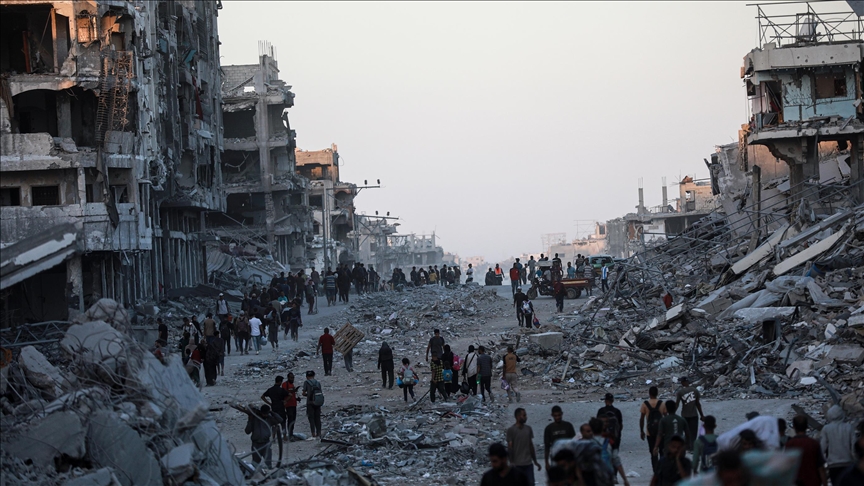ALWAGHT- Gaza is on the brink of environmental collapse after two years of war, as contaminated water, ruined farmland, and crippled infrastructure hinder recovery.
Gaza’s essential systems — water, sanitation, energy, and agriculture — are collapsing after nearly two years of war, according to a new report from the Arava Institute. With 69% of infrastructure damaged and over two million people at risk, the report warns that environmental destruction could make recovery impossible without urgent global intervention. Returning residents now face poisoned water, crippled utilities, and a landscape too damaged to sustain life.
The study reveals severe water insecurity, with 93% of households lacking access to safe water and average daily availability falling to just 8.4 liters per person, far below the World Health Organization’s emergency threshold. Wastewater treatment plants have stopped functioning entirely, forcing raw sewage into makeshift lagoons that threaten to contaminate groundwater and homes. Electricity supplies have dropped by more than 80%, leaving Gaza in near-constant blackout and pushing aid groups to depend on diesel generators.
Environmental collapse has also devastated Gaza’s ability to feed itself. Roughly 80% of croplands are damaged or destroyed, and fishing has been paralyzed by Israeli maritime restrictions. The report describes the territory as suffering “ecological freefall,” with malnutrition rates soaring to ten times their pre-war levels. Dr. David Lehrer of the Arava Institute warned that Gaza is facing not just a humanitarian disaster, but an ecological one that “threatens the very possibility of recovery.”
The report proposes a three-phase recovery plan: immediate relief for clean water and shelter, decentralized power and wastewater solutions, and long-term ecosystem restoration. While a recent ceasefire has allowed displaced Palestinians to begin returning, basic services remain in ruins. Reconstruction is estimated to cost $53 billion, but experts caution that true recovery depends on repairing Gaza’s environment. “Waiting for politics to catch up is not an option,” Dr. Lehrer said. “Recovery must start now, with community-driven solutions that restore the land, water, and air.”



























